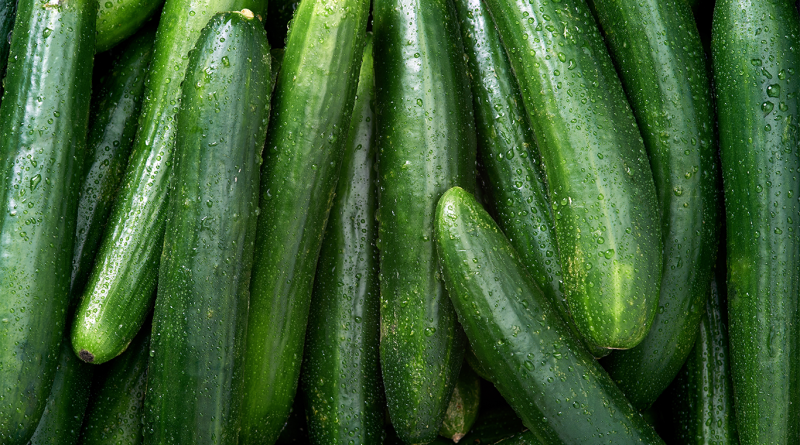Salmonella Outbreak Prompts Nationwide Sushi and Salads Recall
The recent salmonella outbreak linked to contaminated cucumbers has sparked a nationwide recall, encompassing a variety of products beyond whole cucumbers. Items such as pre-packaged salads, sushi, and sliced vegetables have been implicated, heightening concerns among consumers and health officials. The Centers for Disease Control and Prevention (CDC) have reported 68 illnesses across 19 states, with 18 hospitalizations confirmed.
Details of the recall and its extensive scope
This outbreak has led to a significant recall affecting products containing cucumbers distributed between October 12 and November 26, 2024. Retailers such as Walmart and Kroger have been named as part of the recall, further broadening its impact. According to reports, the contaminated cucumbers originated from a supplier in Mexico, with investigations revealing lapses in sanitation during processing.
Consumers are advised to check their homes for affected products, particularly salads, sushi rolls, and vegetable trays that include cucumbers. All implicated items should be discarded immediately to prevent potential illness. The Food and Drug Administration (FDA) has provided a detailed list of the affected lot numbers on its website.
Health implications and symptoms of salmonella infection
The salmonella outbreak tied to contaminated cucumbers has raised significant health concerns. Salmonella is a bacterial infection that can cause symptoms such as diarrhea, fever, abdominal cramps, and vomiting. These symptoms typically appear 6 hours to 6 days after consuming contaminated food.
While many individuals recover without medical treatment, severe cases can arise, particularly in vulnerable populations such as young children, elderly adults, pregnant women, and those with compromised immune systems. Complications, including dehydration and bloodstream infections, may occur in severe instances, necessitating hospitalization.
The CDC emphasizes that anyone who experiences prolonged or severe symptoms after consuming products linked to the recall should seek medical attention promptly. Staying informed about the specific symptoms of salmonella and understanding the associated risks is critical for mitigating the health impacts of this outbreak.
Regulatory and industry responses to the outbreak
Government agencies and industry players have mobilized swiftly to address the growing crisis. The FDA and CDC have launched joint investigations to identify the source of contamination and track the distribution of affected products. Preliminary findings have linked the contamination to improper handling during the harvesting and packaging of cucumbers at a processing facility in Mexico.
Retailers have responded by removing all implicated products from their shelves and issuing notices to customers who may have purchased the items. Additionally, enhanced safety protocols, including stringent sanitation measures and supplier reviews, have been implemented across the industry to prevent future incidents.
The recall has also prompted discussions on the need for more robust food safety regulations, especially for imported produce. Industry groups are advocating for increased investment in traceability technologies, which could help identify contamination sources more quickly and minimize the impact on public health.
Preventive measures and consumer guidance for food safety
In the wake of the salmonella outbreak, consumers are urged to take proactive steps to protect themselves and their families. Here are some essential guidelines to follow:
1. Identify and dispose of recalled products:
Carefully inspect your refrigerator and pantry for any products containing cucumbers, especially pre-packaged salads, sushi, and vegetable trays listed in the recall. Cross-check the lot numbers provided by the FDA to confirm whether the products you own are affected. Dispose of any recalled items promptly and securely, ensuring they are not consumed by mistake.
2. Sanitize surfaces and utensils:
Contaminated produce can leave harmful bacteria on surfaces, utensils, and storage areas. Thoroughly clean and sanitize any areas or tools that came into contact with the recalled products. Use a disinfectant that is effective against bacteria, and wash your hands with soap and water after handling potentially contaminated items.
3. Practice safe food handling habits:
The salmonella outbreak serves as a reminder of the importance of food safety practices. Wash all fresh produce under running water before consuming, even if it will be peeled. Avoid cross-contamination by using separate cutting boards for raw meat and produce. Store perishable items at the appropriate temperatures to prevent bacterial growth.
4. Stay informed about recalls and outbreaks:
Consumers can stay updated on food recalls and safety alerts by visiting the FDA and CDC websites regularly. Subscribing to email alerts or downloading apps dedicated to food safety can ensure you are informed of potential risks as soon as they arise.
5. Seek medical attention if necessary:
If you or someone in your household experiences symptoms of salmonella infection after consuming cucumbers or related products, consult a healthcare provider immediately. Early intervention can help prevent complications, especially in high-risk individuals.
Sources:
To keep up-to-date with our latest food industry news, subscribe to our newsletter today.
